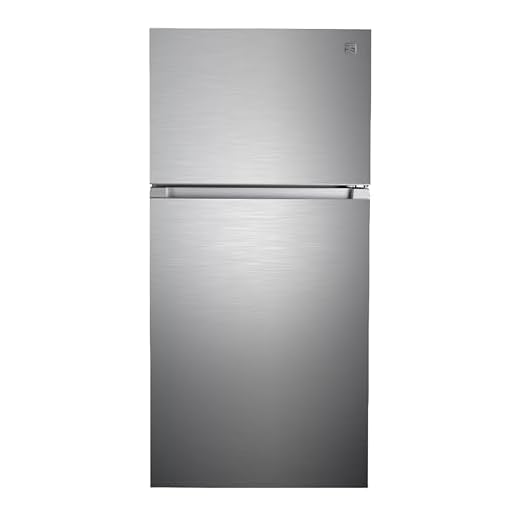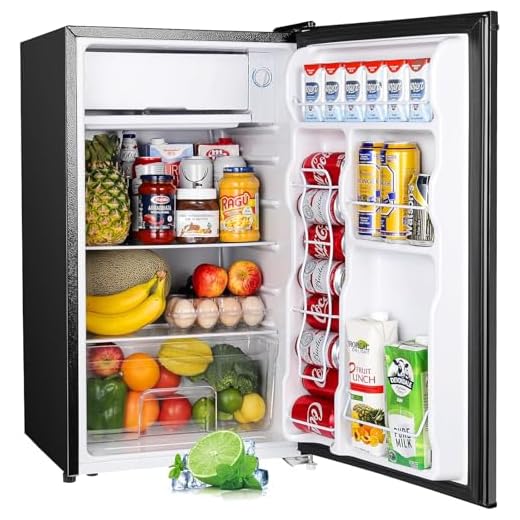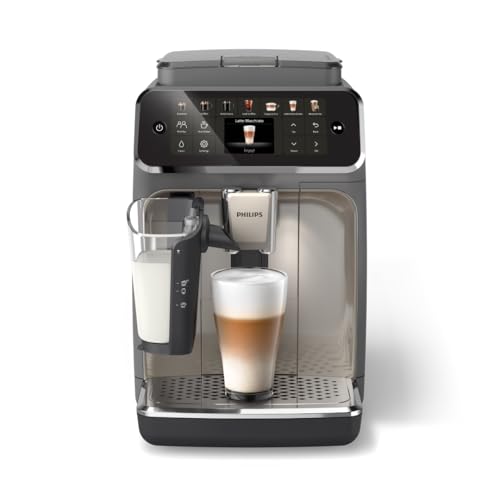



When it comes to understanding the energy consumption of a refrigerator, one important factor to consider is the amp hours it uses. Amp hours, also known as ampere-hours or Ah, is the unit of measure for the amount of electric charge a device consumes over time.
A refrigerator is an essential appliance that runs continuously 24/7, which makes it crucial to know how many amp hours it uses. The amp hour rating of a refrigerator depends on various factors such as its size, efficiency, and usage patterns.
The amp hours consumed by a refrigerator can vary significantly depending on its energy efficiency rating. Energy-efficient refrigerators are designed to consume less power, resulting in lower amp hours. On the other hand, older or less energy-efficient models may use more amp hours.
It is important to note that the amp hour rating of a refrigerator only provides a rough estimate of its energy consumption. Other factors, such as temperature settings, frequency of opening the door, and ambient temperature, can also affect the actual energy usage. However, knowing the amp hour rating can give you a general idea of the refrigerator’s energy consumption and help you make informed decisions about your energy usage.
The Importance of Refrigerator Energy Consumption
Refrigerators are an essential appliance in every household, but their energy consumption can often be overlooked. However, understanding the importance of refrigerator energy consumption is crucial for several reasons.
Firstly, refrigerators typically account for a significant portion of a household’s energy usage. In fact, they are one of the biggest energy consumers among household appliances. Therefore, improving the energy efficiency of refrigerators can lead to substantial energy savings and lower utility bills.
Secondly, reducing refrigerator energy consumption is beneficial for the environment. The electricity needed to power refrigerators contributes to greenhouse gas emissions, which are a major contributor to climate change. By using energy-efficient refrigerators and adopting energy-saving habits, individuals can contribute to reducing their carbon footprint and help mitigate the effects of climate change.
Moreover, energy-efficient refrigerators also have other advantages. They tend to generate less heat, which means they put less strain on air conditioning systems during hot summer months. This can result in lower cooling costs and increased comfort inside the home.
In addition, energy-efficient refrigerators often come with advanced features such as improved temperature control, better insulation, and smart functions. These features not only enhance the overall performance of the refrigerator but also provide convenience to users.
Lastly, being aware of refrigerator energy consumption helps individuals make informed decisions when purchasing a new refrigerator. Energy labels provide information about the energy efficiency of different models, allowing consumers to choose an appliance that aligns with their energy-saving goals.
In conclusion, understanding the importance of refrigerator energy consumption is essential for both economic and environmental reasons. By investing in energy-efficient refrigerators and adopting energy-saving habits, individuals can save money, reduce their carbon footprint, and enjoy the benefits of a more advanced appliance.
Understanding Amp Hours and Their Significance
When it comes to understanding how many amp hours a refrigerator uses, it’s essential to grasp the concept of amp hours and their significance. Amp hours, often abbreviated as Ah, is a unit of measure used to determine the capacity of a battery. It provides an estimate of how long a device or appliance can operate on a single charge or battery cycle.
In the context of a refrigerator, amp hours can help you determine its power consumption and how long it can run on a particular battery size. This information is crucial when planning for off-grid or backup power scenarios, such as camping trips or power outages.
Calculating and understanding amp hours can be straightforward if you know the power consumption of the device in question. To determine the amp hour rating of a refrigerator, you need to know its current draw, typically measured in amps, and the length of time it runs in hours.
Once you have this information, you can use Ohm’s Law to calculate the total ampere-hour rating. This formula involves multiplying the current draw in amps by the number of hours the refrigerator runs:
| Current Draw (A) | Running Time (hours) | Amp Hour Rating (Ah) |
|---|---|---|
| 1.5 | 24 | 36 |
In the example above, if a refrigerator has a current draw of 1.5 amps and runs for 24 hours, the amp hour rating would be calculated as 1.5 (A) x 24 (hours) = 36 Ah.
Understanding amp hours is essential for effectively managing the power consumption of your refrigerator or any other electrical device. By knowing how many amp hours your refrigerator uses, you can make informed decisions about battery capacity and ensure you have enough power to keep your food cold in various situations.
Factors Affecting Refrigerator Energy Consumption
When it comes to determining the amp hours a refrigerator uses, there are several key factors to consider. Understanding these factors can help you make more informed decisions about energy consumption and potentially lower your electricity bills. Here are some of the main factors that can influence how much energy your refrigerator consumes:
- Size and Capacity: Larger refrigerators generally require more energy to operate. This is because they have larger internal volumes and therefore need more power to cool and maintain the desired temperature.
- Age: Older refrigerators tend to be less energy efficient compared to newer models. Modern refrigerators are designed with advanced technologies that help to minimize energy consumption.
- Temperature Settings: The temperature settings you choose for your refrigerator can have a significant impact on energy usage. Keeping the temperature too low or too high can increase energy consumption.
- Door Seals: Damaged or worn-out door seals can cause air leakage, which can lead to increased energy consumption as the refrigerator works harder to maintain the desired temperature. It’s important to regularly check and replace damaged seals.
- Location: Where you place your refrigerator can also affect its energy consumption. Placing it in direct sunlight or near heat sources like ovens or radiators can cause it to work harder to maintain the desired temperature.
- Usage Patterns: How often you open the refrigerator door, how long you keep it open, and how much food you store inside can all impact energy usage. Minimizing door openings and ensuring that the refrigerator is not overloaded can help optimize energy efficiency.
- Defrosting: Frost build-up can decrease the efficiency of your refrigerator, so it’s important to defrost it regularly. Manual defrosting is more energy efficient than automatic defrosting, as it reduces the need for the refrigerator to work harder to maintain the desired temperature.
By considering these factors and making conscious choices, you can help reduce the energy consumption of your refrigerator and contribute to a more sustainable lifestyle.
Tips for Reducing Amp Hours Used by a Refrigerator
A refrigerator is an essential appliance in every household, but it can also be a significant contributor to your energy consumption. Here are some tips to help you reduce the amp hours used by your refrigerator:
1. Keep the Temperature at the Optimal Level
Set your refrigerator’s temperature to the manufacturer’s recommended level, usually between 35 to 38 degrees Fahrenheit (1.7 to 3.3 degrees Celsius). This temperature range ensures that your food stays fresh while minimizing the energy required to maintain it.
2. Avoid Overstocking the Refrigerator
While it’s tempting to stuff your refrigerator with food, overloading it can prevent proper airflow and make the compressor work harder. This leads to increased energy consumption. Keep your refrigerator well-organized and remove any unnecessary items to maximize its efficiency.
3. Check the Door Seals
Inspect the door seals regularly to ensure they are tight and free from any damage. Loose or damaged seals allow cool air to escape, forcing the refrigerator to work harder to maintain its temperature. Use a dollar bill test to check the tightness of the seals.
4. Allow Sufficient Air Circulation
Make sure your refrigerator has enough space around it for proper air circulation. Avoid placing it close to walls or other appliances that can obstruct the airflow. Good ventilation prevents the compressor from overheating, improving energy efficiency.
5. Defrost and Clean Regularly
Frost buildup in the freezer and a dirty condenser coil can hinder the refrigerator’s performance and increase energy consumption. Defrost your freezer regularly and clean the condenser coil at least once a year to keep your refrigerator running efficiently.
6. Keep the Fridge Full
A well-stocked refrigerator retains cold temperatures better than an empty one. If you don’t have enough food to fill it, consider using bottles of water to occupy the empty space. This reduces the amount of cold air lost when you open the door, leading to lower energy consumption.
By implementing these tips, you can minimize the amp hours used by your refrigerator without compromising its functionality. Not only will this help save energy, but it will also lead to lower electricity bills and contribute to a greener environment.
Comparing Energy Efficiency of Different Refrigerator Models
When it comes to choosing a refrigerator, energy efficiency should be a top consideration. Not only does an energy-efficient refrigerator help reduce your carbon footprint, but it can also result in significant cost savings on your utility bills over time. Here, we compare the energy efficiency of different refrigerator models to help you make an informed decision.
1. Energy Star Ratings:
- Energy Star is a certification program that identifies and promotes energy-efficient products. When choosing a refrigerator, look for the Energy Star label, which indicates that the appliance meets strict energy efficiency guidelines set by the Environmental Protection Agency (EPA).
- Refrigerators with Energy Star ratings are estimated to use about 9% less energy than standard models, which can add up to substantial savings over the lifespan of the appliance.
2. Size and Design:
- The size and design of a refrigerator can also impact its energy efficiency. Generally, smaller refrigerators tend to be more energy efficient than larger ones, as they have less space to cool.
- Consider the layout and organization of the refrigerator as well. Models with separate compartments or adjustable shelving allow for better organization, reducing the need to keep the refrigerator door open for extended periods.
3. Type of Cooling System:
- Refrigerators use different types of cooling systems, such as conventional compressors, inverter compressors, and thermoelectric cooling.
- Inverter compressors are more energy efficient than conventional compressors, as they regulate the speed of the motor based on the cooling demand. This results in less energy wastage.
- Thermoelectric cooling systems are also energy efficient, as they use solid-state technology to transfer heat. However, these models are typically smaller and may not be suitable for larger households.
4. Additional Features:
- Some refrigerator models come with additional features that can enhance energy efficiency. Look for features like LED lighting, which consumes less energy than traditional lighting options.
- Smart refrigerators are equipped with sensors and connectivity options that allow you to monitor and control energy usage, optimizing efficiency.
Conclusion:
When comparing the energy efficiency of different refrigerator models, consider factors such as Energy Star ratings, size and design, cooling system type, and additional features. By selecting an energy-efficient refrigerator, you can reduce your environmental impact and save on energy costs in the long run.
FAQ
What is the average amp hour usage of a refrigerator?
The average amp hour usage of a refrigerator varies depending on the specific model and size. However, most refrigerators consume around 1-2 amp hours per hour of operation.
How many amp hours does a small refrigerator use?
A small refrigerator typically uses around 1 amp hour per hour of operation. This can vary slightly depending on the efficiency of the refrigerator and the temperature settings.
Does the size of a refrigerator affect its amp hour usage?
Yes, the size of a refrigerator can affect its amp hour usage. Generally, larger refrigerators require more power to operate and therefore have higher amp hour usage compared to smaller ones.
Is it possible to estimate the amp hour usage of a refrigerator for a specific period of time?
Yes, it is possible to estimate the amp hour usage of a refrigerator for a specific period of time. You can multiply the average amp hour usage per hour by the number of hours the refrigerator will be in operation to get an estimate of the total amp hour usage.









